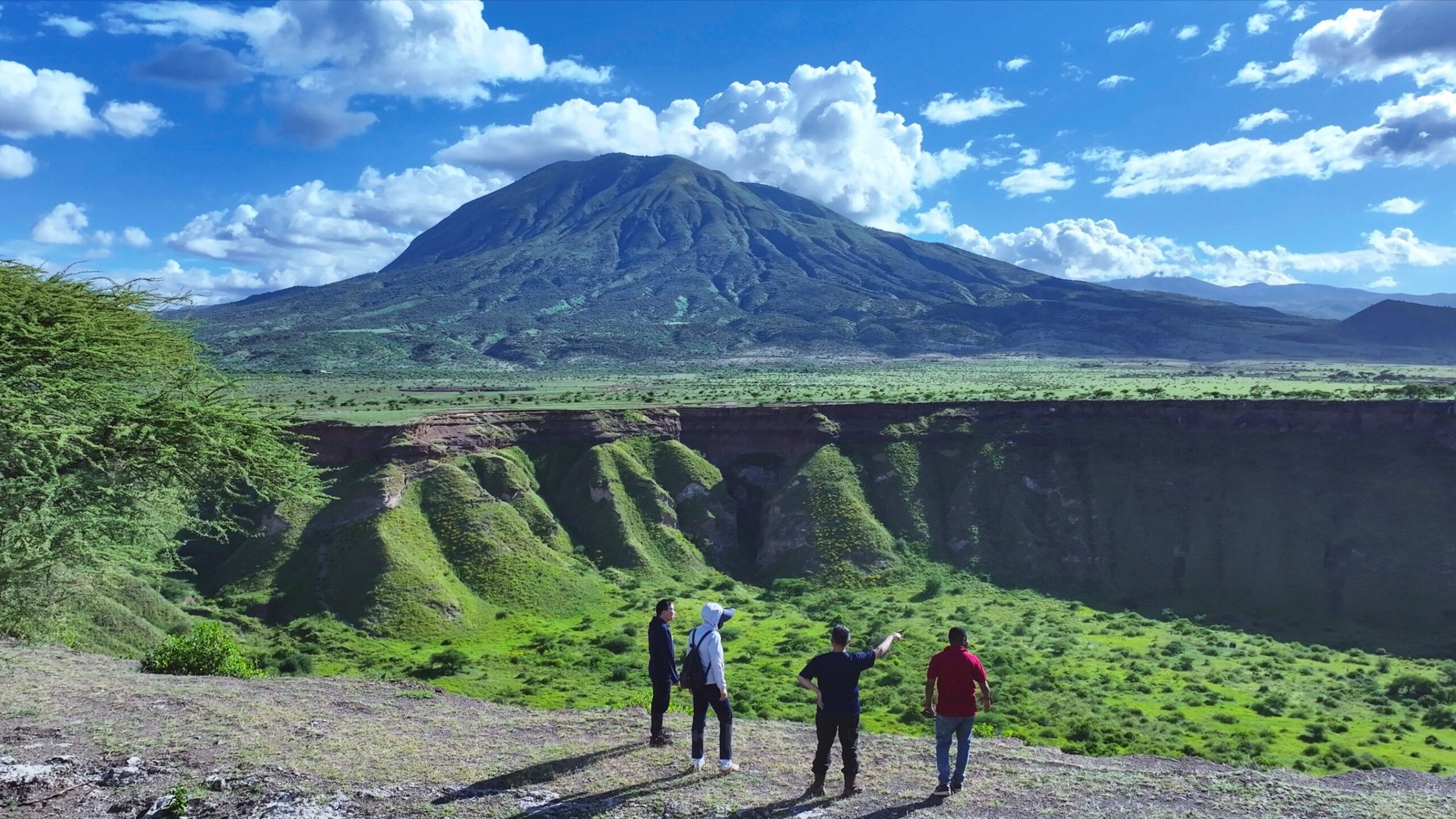Business
Tanzania’s Ngorongoro-Lengai Geopark Revitalized with Chinese Support

The Ngorongoro-Lengai Global Geopark in Tanzania has seen significant revitalization efforts, aided by a collaboration with China. This initiative, which began in late 2022, aims to enhance the park’s infrastructure and visitor experience, addressing concerns raised by UNESCO regarding its management and facilities.
In September 2023, a group of over 50 climbers, including both Chinese and Tanzanian nationals, ascended the Ol Doinyo Lengai volcano to conduct a geoheritage survey. This demanding trek, which involved climbing nearly 3,000 meters, was crucial for gathering data on the geological features of the park before the rising sun obscured the stunning views of molten lava. The project is part of a broader reconstruction effort supported by the Chinese government, marking the first geopark built with Chinese foreign aid.
Located in northeastern Tanzania, the geopark is notable for its unique geological formations, including the Ngorongoro Crater and the Olduvai Gorge, a site rich in paleontological history. In 2018, it was designated as a global geopark by UNESCO, encompassing approximately 12,000 square kilometers. However, due to inadequate infrastructure and visitor services, the park was issued a warning by UNESCO in 2022, prompting urgent corrective measures.
During a visit to China in November 2022, Tanzanian President Samia Suluhu Hassan and Chinese President Xi Jinping signed a project agreement to address these challenges. This initiative is supported by the Agency for International Economic Cooperation and includes technical assistance from the Tianjin Center of the China Geological Survey as well as construction efforts led by the China Railway 25th Bureau Group.
Ren Junping, director of the Southern Africa Geological Survey Cooperation Center, emphasized the importance of balancing local needs with environmental conservation during the planning and implementation phases. The project team undertook extensive surveys to map geological heritage resources, which are vital for future tourism and educational initiatives.
Over the past year, the team conducted thorough investigations of the geopark, focusing on geological sites and the characteristics of volcanic rock strata. They also used modern technology, including drones, to document their findings and enhance public engagement through educational materials.
As part of the improvements, nearly 300 signs have been installed throughout the park, providing information in English, Swahili, and Chinese. A field interpretation system offers insights in multiple languages, catering to the diverse visitor demographic. Additionally, a new geological museum is being constructed, designed to harmonize with local architecture while integrating sustainable energy solutions like solar panels.
The park’s ecosystem supports around 300,000 wild animals, including zebras, lions, and elephants, creating a vibrant habitat. To ensure the safety of both wildlife and visitors, the project includes measures to limit human impact, such as maintaining primitive pathways and scheduling work hours to avoid disrupting animal activity.
In addition to ecological considerations, the project recognizes the cultural significance of the local Maasai community, which comprises a significant portion of the park’s population. Initiatives include immersive tours for visitors to learn about Maasai traditions and a training program for locals to equip them with knowledge about geological resources and disaster monitoring.
The revitalization efforts have already yielded positive results, culminating in a successful revalidation of the geopark by UNESCO in December 2023. Zhang Jianping, vice-president of the Global Geoparks Network, highlighted the project’s critical role in enhancing local infrastructure and economic opportunities while fostering cultural exchange and environmental protection.
As the project nears completion in November 2025, it stands as a testament to international cooperation in promoting sustainable tourism and conservation. Zhang Zhonghui, a senior engineer, described the initiative as a model for empowering local communities through training and improved livelihoods, ultimately enriching the cultural and natural heritage of the Ngorongoro-Lengai Global Geopark.
-

 Science2 months ago
Science2 months agoInventor Achieves Breakthrough with 2 Billion FPS Laser Video
-

 Health2 months ago
Health2 months agoCommunity Unites for 7th Annual Into the Light Walk for Mental Health
-

 Top Stories2 months ago
Top Stories2 months agoCharlie Sheen’s New Romance: ‘Glowing’ with Younger Partner
-

 Entertainment2 months ago
Entertainment2 months agoDua Lipa Aces GCSE Spanish, Sparks Super Bowl Buzz with Fans
-

 Health2 months ago
Health2 months agoCurium Group, PeptiDream, and PDRadiopharma Launch Key Cancer Trial
-

 Top Stories2 months ago
Top Stories2 months agoFormer Mozilla CMO Launches AI-Driven Cannabis Cocktail Brand Fast
-

 Entertainment2 months ago
Entertainment2 months agoMother Fights to Reunite with Children After Kidnapping in New Drama
-

 World2 months ago
World2 months agoIsrael Reopens Rafah Crossing After Hostage Remains Returned
-

 World2 months ago
World2 months agoR&B Icon D’Angelo Dies at 51, Leaving Lasting Legacy
-

 Business2 months ago
Business2 months agoTyler Technologies Set to Reveal Q3 Earnings on October 22
-

 Health2 months ago
Health2 months agoYouTube Launches New Mental Health Tools for Teen Users
-

 Health2 months ago
Health2 months agoNorth Carolina’s Biotech Boom: Billions in New Investments









